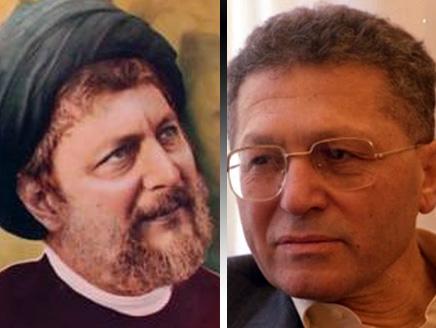By Hadi Fornaji.

Tripoli, 18 November:
Forensic analysis indicates that human remains discovered in Libya after the revolution are those of prominent Libyan . . .[restrict]dissident and former diplomat Mansour Rashid Al-Kikhia, who disappeared in Cairo in 1993.
The body, which was found in a house in a southern district of Tripoli, was initially thought to be that of Lebanese Shiite cleric Imam Musa Sadr. The Imam has been missing since 1978 when his trace was lost during an official visit to Libya.
But samples of the body analysed by the International Commission on Missing Persons (ICMP) did not match the DNA of Musa Sadr’s sons, according to a statement made by Mahmud Al-Kikhia, Mansour’s brother. Instead, he believes there is strong evidence that the body found is that of his brother, who is thought to have been kidnapped and killed on order of the former Libyan regime.
Both cases are part of the many still-unresolved mysteries linked to Qaddafi’s brutal repression of internal and external opponents to his rule. After the fall of the Qaddafi regime, the families of the missing finally regained hope to obtain clarification regarding the fate of their beloved. But the revolution has also paved the way for better relations with Lebanon following decades of political tensions, partly related to the Imam’s disappearance.
Many in Lebanon have a strong interest in seeing this case resolved, as Musa Sadr was one of the country’s most influential figures in modern history and is still revered by the Shiite community for the religious and political leadership he once held.
An immediate identification of what he believes to be his brother’s body was impossible due to the effects of freezing, said Al-Kikhia, adding that initial medical examination indicated the victim had not died of natural causes.
This, he explained, contradicts the official version of his brother’s death recounted by former intelligence chief Abdallah Senussi, who was extradited from Mauritania in September and is now facing trial in Libya.
Interrogated upon his return, Senussi acknowledged the existence of the corpse but has apparently not made any clear statement as to its identity. At the same time, Senussi has allegedly admitted that Mansour Al-Kikhia was at some point detained in the intelligence office of Al-Nasr in Tripoli’s Abu Slim district, which – if true – supports the hypothesis of the body belonging to the Libyan dissident. Hoping to obtain proof, Mahmud Al-Kikhia visited the ICMP headquarters in Sarajevo in early November and provided DNA samples belonging to himself as well as his brother’s sons. He was accompanied by the two Libyan public prosecutors in charge of this case. While investigations continue, the body will be given a decent funeral within the next few days, according to Mahmud Al-Kikhia.
The ICMP is an intergovernmental organisation whose mandate is to assist governments and other institutions in finding and identifying missing people in the wake of armed conflict or natural disaster.
Born to an influential Benghazi family in 1931, Mansour Al-Kikhia graduated in law and political science from prestigious French universities. From the late 1950s up until the overthrow of the monarchy, he held various high-level positions within Libya’s royal diplomatic service.
As one of the country’s most respected officials he managed to retain his position even after the 1969 coup d’état. Having served as Minister of Foreign Affairs for a short period in the early 1970s, Mansour Al-Kikhia was dispatched to New York as the Libyan Representative to the United Nations from 1975 to 1980. But his critical attitude eventually put him at odds with Qaddafi and ultimately prompted his departure.
Estranged by the radicalisation of the revolutionary committees, in particular the systematic liquidation of Libyan dissidents – whom Qaddafi described as “stray dogs” – he decided to join the opposition and leave the country. In exile, Al-Kikhia soon became a leading member of the Libyan opposition abroad, involved in the establishment of the Arab Organisation for Human Rights (AOHR) and founder of the Libyan National Alliance, a comparatively small opposition group. His active role in trying to unite Libyan opposition groups to confront the regime at home made him a prime target.
He vanished under mysterious circumstances while in Cairo for an AOHR meeting in December 1993, presumably abducted and brought back to Libya by regime agents. Intelligence reports later stated that the Egyptian secret services might have been involved in the abduction.
If the Al-Kikhia case really is resolved through these latest findings, the mystery concerning Musa Sadr’s disappearance will continue haunting the Imam’s followers and those who would like to see this stumbling stone removed from the path towards stable relations between Libya and Lebanon.
The well-respected cleric and founder of the Shiite Amal movement in south Lebanon arrived in Libya in August 1978 for talks with regime officials. He and his two companions then disappeared without leaving any trace, except for their passports, which, 26 years later, mysteriously re-appeared in Rome. Qaddafi consistently denied being involved in the disappearance and always insisted the Imam had left Libyan soil.
Since last year, there has been plenty of speculation as to what really happened, fuelled by fragments of information provided by former regime officials – including former diplomat Abdel Moneim Al-Honi and Qaddafi’s long-time Chief of Protocol Nuri Al-Mismari – and a series of media reports on the matter.
But despite the setting up of investigation teams in both countries, multiple field visits and the emergence of new evidence the case has been dragging on for months.
Back in April 2012, Libyan investigators discovered clothes and human remains they thought may be those of Musa Sadr and his companions in a Tajura graveyard and sent their Lebanese counterparts DNA samples. While NTC Chairman Mustafa Abdel Jalil confirmed such reports, Lebanese officials at the time denied them.
In June, the judicial committee set up by the Lebanese authorities to follow up on the examinations confirmed the receipt of the samples but said they did not belong to the three missing men. Supposed evidence found in or near Abu Salim prison in Tripoli lead some to conclude that the Imam had spent years in detention and may still be alive somewhere, a hypothesis dismissed by most.
In September, the long-awaited interrogation of Abdallah Senussi by a high-level delegation from Lebanon reportedly failed to bring clarification.
Disappointed at the seemingly slow pace of the investigations, some have begun accusing either side of trying to cover up parts of the story. Two months ago, a Lebanese newspaper claimed Libya was offering the Lebanese government $ 1 billion for dropping the case, a claim Libyan authorities denied vehemently.
Sources close to the Lebanese Shiite party and militia Hezbollah have meanwhile begun accusing the Lebanese government of not having any sincere interest in resolving the case, asking, for instance, why investigators waited so long to interview Senussi and have not done more to include the families of the missing.
In Lebanon, formal charges against the former Libyan authorities are still pending. The Judicial Council, Lebanon’s highest judiciary body, was charged with filing a law suit on behalf of the families of the missing, represented by two plaintiff parties. After new claims for financial compensation were brought up during its last session on Friday, 16 November 2012, the Council adjourned the court ruling for the second time since 2011 in order to incorporate new evidence relating to Musa Sadr’s alleged imprisonment in Libya.
The sentence is now due to be pronounced on 22 March 2013. [/restrict]








